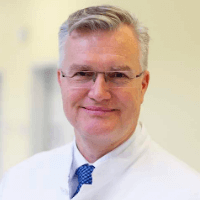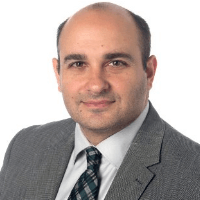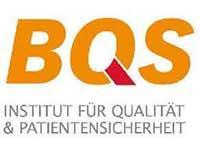Open Endarterectomy or Angioplasty for treatment of Diabetic Foot in European hospitals
Treatment prices are regulated by national law of the corresponding countries, but can also include additional hospital coefficients. In order to receive the individual cost calculation, please send us the request and medical records.

Innovation Center for Endovascular Medicine
The Innovation Center for Endovascular Medicine offers the full range of highly effective treatment for any diseases of the arteries and veins. Of particular interest is the endovascular treatment of aortic aneurysm, carotid stenosis, occlusive peripheral arterial disease and varicose veins. The center is equipped with two high-tech hybrid operating rooms for endovascular treatment of vascular diseases, as well as one operating room for classical open vascular interventions. The treatment can be provided both on an inpatient and outpatient basis. The highly qualified doctors of the center treat more than 3,000 patients every year, and therefore they can boast of extensive clinical experience and excellent treatment success rates. The specialists of the medical center prefer a complex and interdisciplinary approach to treatment, therefore, in appropriate clinical cases, radiologists, oncologists, cardiologists, cardiac surgeons, nephrologists and diabetologists are involved in the therapeutic process. In addition, each patient receives an individual treatment regimen corresponding to his needs and particular clinical indications. Such an approach guarantees high-quality results even in particularly complex clinical cases.





Department of Vascular Surgery
The Department of Vascular Surgery offers the full range of diagnostic services and surgical interventions for patients with diseases of the arteries, veins, and lymphatic vessels. The department's doctors have excellent skills and deep knowledge in the field of vascular surgery, ranging from complex interventions on the aorta to advanced endovascular methods for treating varicose veins using ultrasound. In close cooperation with the specialists from the Center for Vascular Diseases, the department's doctors provide an individual and interdisciplinary therapy for patients with severe vascular and concomitant diseases. The department has prestigious quality certificates from the German Society of Vascular Surgery (DGG) and a certificate from the Institute for Quality and Patient Safety (BQS). The health of patients is in the safe hands of highly qualified specialists, for whom it is important that a patient receives the most sparing and effective treatment in a pleasant atmosphere.







Department of Vascular and Endovascular Surgery
The Department of Vascular and Endovascular Surgery offers the full range of services in these medical fields. The department positions itself as a supraregional medical facility specializing in the planned and emergency treatment of all diseases of the vascular system (with the exception of the pathology of the coronary arteries and vessels located near the heart). The therapeutic options cover both open surgery and advanced interventional catheter techniques (alone or in combination with classical surgery). Modern conservative treatments are also available here.






In 25% of cases, patients with diabetes suffer from diabetic foot. This is the most common cause of leg amputation. To prevent the loss of a lower extremity, a patient should receive timely treatment, since the progression of the disease causes not only the development of ulcers on the skin, but also the destruction of deep tissues, the development of osteomyelitis, and ankle joint destruction. Doctors in the countries with advanced medicine perform modern minimally invasive and open interventions aimed at restoring the blood supply to the foot.
Content
- Revascularization for diabetic foot
- Open endarterectomy
- Endovascular interventions
- Treatment after revascularization
- Why is it better to undergo treatment abroad
- Treatment in Europe with Booking Health
Revascularization for diabetic foot
Patients with diabetic foot undergo surgery for the revascularization (blood supply restoration) of the lower extremity.
Most cases of the disease are associated with macroangiopathy, which implies damage to the arteries. Their lumen is closed by atherosclerotic plaques, in which calcium salts can then be deposited and blood clots are often formed. This results in the development of ischemia (oxygen starvation) of the tissues of the lower extremity that can progress to critical limb ischemia. After the development of critical limb ischemia, revascularization is required as soon as possible. Without the help of vascular surgeons, the risk of death within 6 months is 20%, and the risk of lower limb amputation reaches 60%.
In countries with advanced medicine, doctors try to provide timely treatment, even before the development of critical limb ischemia. They carry out a Doppler ultrasound scan and angiography to find out which arteries have impaired blood flow. The corresponding vessels are then dilated using open surgery or minimally invasive procedures.
Here are the arteries that can be operated on:
- External iliac artery.
- Superficial and deep femoral arteries.
- Popliteal artery.
- Anterior and posterior tibial arteries.
- Fibular artery.
- Lower leg arteries.
After a surgical procedure for the restoration of vascular patency, the blood supply to the tissues improves, and their oxygen saturation increases. Necrotic processes stop. Doctors perform radical surgical debridement of the diabetic foot only after revascularization. They remove dead tissue and close defects with local tissues or using skin grafts.
Open endarterectomy
In the twentieth century, open surgery for diabetic foot was considered the main one. Today, they are still often performed in countries with poorly developed medicine, but in developed countries open interventions are used less and less.
The main open surgical interventions for the treatment of diabetic foot are as follows:
- Endarterectomy and dilation of the artery – removal of atherosclerotic plaques, the blood vessel defect is closed with a patch.
- Bypass surgery – formation of a new blood flow path bypassing the narrowed artery.
Instead of open endarterectomy, doctors increasingly prefer minimally invasive interventions for diabetic foot. Nonetheless, standard surgical operations sometimes have to be performed as well. They are usually required in case of significant calcification of plaques or a large extent of the artery stenosis zone. Sometimes doctors use both approaches in the same patient during the same intervention: endovascular and surgical treatment. Such surgical procedures are called hybrid ones.
Endovascular interventions
Initially, angioplasty was considered only as a procedure to save a limb in the most severe cases: when the patients with diabetes cannot undergo open surgery due to a high surgical risk or in the absence of a distal bed (vessels located closer to the foot), which can receive a shunt (an additional vessel, carrying blood bypassing the narrowed section of the artery).
However, with the accumulation of experience in performing angioplasty and obtaining research results, this procedure gradually replaced open surgical techniques. As it turned out, it gives comparable results with open surgery. Since 2007, European guidelines have indicated it as the main method of treatment for neuroischemic and ischemic (associated with impaired blood supply) forms of diabetic foot. Today, doctors in developed countries perform 80% of all interventions using a minimally invasive technique, and only in 20% of cases they have to do an open surgical intervention.
Options for endovascular surgery for diabetic foot include:
- Balloon angioplasty – dilation of a narrowed blood vessel with an inflating balloon.
- Stenting – implantation of a metal frame that prevents the blood vessel from repeated narrowing.
Both types of surgical interventions can be performed on the same patient with diabetes: the blood vessel is dilated, and then a stent is placed inside.
The surgery is performed under local anesthesia. The doctor inserts a catheter into the arterial bed through a small incision in the groin. It delivers a balloon to the narrowed area, and a saline solution with a contrast agent is injected into it. The blood vessel expands and blood flow through it is restored. Whenever required, a stent can be placed in the narrowed area to reduce the risk of recurrence of the stenosis. The procedure is X-ray guided. An excellent result is considered if, after endovascular intervention, the patency of the blood vessel is restored by 80% or more.
Benefits of minimally invasive treatment:
- Minimal trauma – just a single small incision in the groin.
- Short hospitalization period.
- No need for rehabilitation.
- Low risk of complications – the surgical intervention is safe for health.
- No need for general anesthesia.
- Possibility of successful lower limb revascularization even in patients with high surgical risk, with poor health, for whom conventional surgery is contraindicated.
Both immediate and long-term outcomes after open and endovascular interventions are the same. Therefore, in countries with developed medicine, minimally invasive, safe for health treatment is always a priority.
Treatment after revascularization
Blood circulation in the extremities improves immediately after revascularization. Nonetheless, patients with diabetic foot still require additional treatment.
Vascular surgery is usually performed when the patient's foot already has ulcers, and sometimes deep tissues are destroyed, an infection has joined. Revascularization is quite often performed even against the background of phlegmon or gangrene, but even the most severe infectious complications can usually be eliminated after the blood supply is restored.
Patients undergo necrectomy, which is a procedure for the excision of dead tissue. Doctors open and drain purulent foci. Within a few weeks, the wounds heal. The defects are then closed with skin grafting.
Revascularization gives not only good immediate, but also long-term outcomes. Even if the surgery was performed against the background of critical limb ischemia, the risk of amputation within 12 months does not exceed 10%. However, in the future, the disease may progress again, and some patients suffer from a repeated blockage of the arteries with a deterioration in blood flow. Therefore, patients with diabetes receive constant conservative therapy: antiplatelet agents, statins, hypoglycemic drugs, insulin, antihypertensive therapy.
Why is it better to undergo treatment abroad
In developed countries, better treatment results can be obtained with low health risks. Healthcare professionals abroad use the latest technologies. The treatment is provided in accordance with international protocols.
In countries with poorly developed medicine, even with critical limb ischemia, revascularization is performed only in 50% of patients.Moreover, in 90% of cases, these are open surgical interventions. Most patients are treated in general surgical hospitals.
Europe offers specialized clinics for diabetic foot. All patients with ischemic and neuroischemic forms of the disease undergo revascularization. Doctors do not wait for the occurrence of critical limb ischemia, but perform the operation in a timely manner, prior to the development of severe complications.
Several reasons for you to entrust your health to foreign specialists:
- You will receive medical care in specialized clinics for diabetic foot.
- In 80% of cases, revascularization is performed using a minimally invasive method that is safe for health, with angioplasty.
- Even if open surgery is required, its invasiveness will be lower due to the use of hybrid interventions: they involve simultaneous open surgery and endovascular procedures on different arteries.
- Vast experience in performing angioplasty and vascular stenting, since in Europe these interventions are considered the main methods of diabetic foot treatment.
- High efficiency of surgical procedures – more than 90% of patients fully restore blood circulation in the lower extremity after angioplasty or open endarterectomy.
- Comprehensive approach: you will also receive conservative therapy, if necessary, surgical debridement of the foot, skin grafting.
Treatment in Europe with Booking Health
To undergo diabetic foot treatment in one of the European hospitals, you can use the services of the Booking Health company. On our website, you can see the cost of treatment and compare prices in different hospitals in order to book a medical care program at a favorable price. Treatment in European hospitals will be easier and faster for you, and the cost of treatment will be lower.
You are welcome to leave your request on the Booking Health website. Our specialist will contact you and provide a free consultation on treatment in Europe. Booking Health will fully organize your trip abroad. We provide the following benefits for you:
- We will select the best medical hospital for treatment in Europe, whose doctors specialize in diabetic foot treatment and achieve the best results.
- We will solve the problem of the language barrier, establish communication with the doctor of the European hospital.
- We will reduce the waiting time for the medical care program. You will receive diabetes treatment on the most suitable dates for you.
- We will reduce the price. The cost of treatment in Europe will be lower due to the lack of overpricing and additional coefficients for foreign patients.
- We will take care of all organizational issues: we will prepare documents, meet you abroad and take you to the hospital, book a hotel, and provide interpreting services.
- We will prepare a program and translate medical documents. You will not need to repeat the previously performed diagnostic procedures.
- We will keep in touch with the hospital after the completion of treatment in Europe.
- We will organize additional diagnostic examinations and treatment of diabetes in European hospitals, if required.
- We will buy medicines abroad and forward them to your native country.
Your health will be in the safe hands of the world's leading doctors. The Booking Health specialists will help reduce the cost of treatment, organize your trip to a European hospital, and you can fully focus on restoring your health.
Authors:
This article was edited by medical experts, board-certified doctors Dr. Nadezhda Ivanisova, and Dr. Bohdan Mykhalniuk. For the treatment of the conditions referred to in the article, you must consult a doctor; the information in the article is not intended for self-medication!
Our editorial policy, which details our commitment to accuracy and transparency, is available here. Click this link to review our policies.

